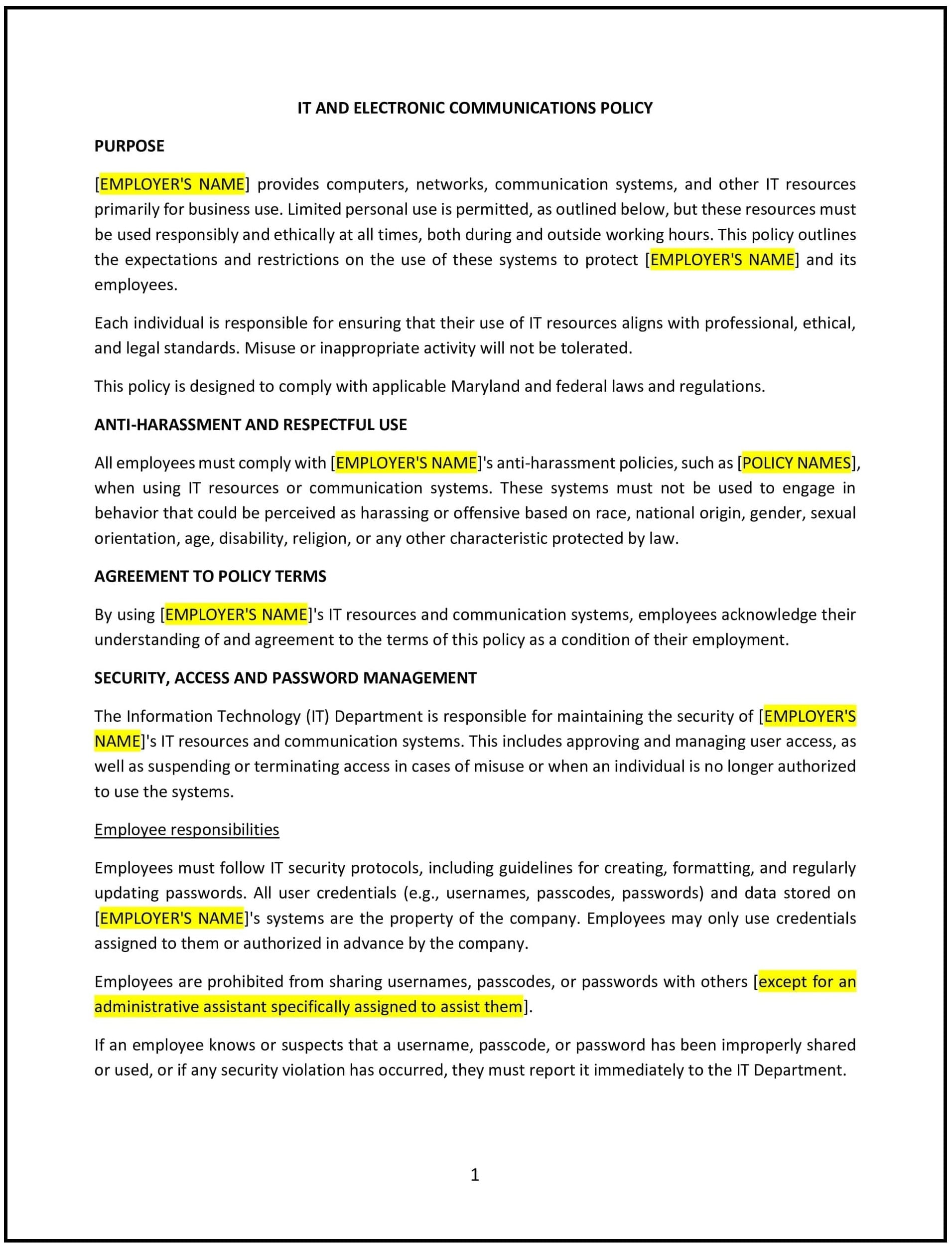IT and electronic communications policy (Maryland): Free template
Got contracts to review? While you're here for policies, let Cobrief make contract review effortless—start your free review now.

Customize this template for free
IT and electronic communications policy (Maryland)
This IT and electronic communications policy is designed to help Maryland businesses manage the use of technology and communication tools in the workplace. It establishes guidelines for proper usage, security, and monitoring of IT resources, including email, internet, and company-provided devices.
By adopting this policy, Maryland businesses can safeguard sensitive data, promote productivity, and ensure the responsible use of IT systems.
How to use this IT and electronic communications policy (Maryland)
- Define acceptable use: Clearly outline the appropriate use of company-provided devices, email, and internet access for business purposes.
- Set security guidelines: Provide rules for protecting sensitive information, including password management, device encryption, and secure file sharing.
- Address personal use: Specify the extent to which employees may use IT resources for personal purposes, if allowed.
- Prohibit prohibited activities: Detail activities such as accessing inappropriate websites, sharing confidential information, or engaging in illegal activities.
- Implement monitoring protocols: Inform employees that company IT systems may be monitored to ensure compliance with the policy.
- Include incident reporting: Establish a process for reporting IT-related issues, such as phishing attempts, data breaches, or device loss.
- Reflect Maryland-specific considerations: Incorporate state regulations or requirements related to electronic communications and data protection.
Benefits of using this IT and electronic communications policy (Maryland)
Implementing this policy provides Maryland businesses with several advantages:
- Enhances security: Protects company data and systems from breaches, malware, and unauthorized access.
- Improves productivity: Minimizes distractions by setting clear expectations for IT resource usage.
- Reduces risks: Mitigates legal and reputational risks associated with improper use of electronic communications.
- Promotes accountability: Ensures employees understand their responsibilities when using company IT systems.
- Aligns with Maryland standards: Reflects state-specific requirements for electronic communications and data protection.
Tips for using this IT and electronic communications policy (Maryland)
- Train employees: Provide training on cybersecurity best practices and proper use of IT resources.
- Use monitoring tools: Implement software to track system usage and detect unauthorized activities.
- Communicate expectations: Regularly remind employees of the policy and their responsibilities.
- Update regularly: Review the policy to reflect changes in technology, Maryland laws, or business needs.
- Document incidents: Maintain records of IT issues and responses to improve future security measures.